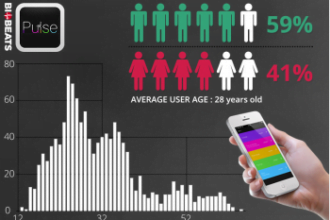 It’s only natural for some people (and their families) battling physical and mental illnesses to use the Internet and social media for emotional and moral support. Yet, in a culture where we’re expected to be sick in silence, going public with an illness is still taboo.
It’s only natural for some people (and their families) battling physical and mental illnesses to use the Internet and social media for emotional and moral support. Yet, in a culture where we’re expected to be sick in silence, going public with an illness is still taboo.
We know better, but when we are sick sometimes we think we’re the only ones in the world coping with a physical or mental illness.
 It’s only natural for some people (and their families) battling physical and mental illnesses to use the Internet and social media for emotional and moral support. Yet, in a culture where we’re expected to be sick in silence, going public with an illness is still taboo.
It’s only natural for some people (and their families) battling physical and mental illnesses to use the Internet and social media for emotional and moral support. Yet, in a culture where we’re expected to be sick in silence, going public with an illness is still taboo.
We know better, but when we are sick sometimes we think we’re the only ones in the world coping with a physical or mental illness.
Taking care of a sick family member or friend can also be a very solitary experience.
Because humans are social animals, it’s not at all surprising that some turn to the Web and social media to share their health stories, provide emotional/moral support and more.
Those who view these activities as quite natural wonder why:
- Some are baffled or offended when people decide to share their health stories online and via social media
- Doctors and other health providers actively discourage people from going online when they have an illness
There may be a simple reason people behave this way. A lot of our unease with those who choose to be sick in public comes from living in a culture where we are expected to cope with illness in silence.
Two Recent Articles Illustrate Our Discomfort With People Who Choose to Be Sick in Public
Our cultural discomfort with public sickness was recently illustrated by two articles written by husband and wife Bill and Emma Keller focusing on Lisa Bonchek Adams, who has been writing — via social media and the Web — about her life with breast cancer for more than six years.
Emma’s piece, published on the Guardian’s Website (and since removed), raised a number of questions about whether it is appropriate and ethical for Lisa to tweet about her cancer. In the piece, she noted that Lisa has tweeted about her experiences more than 100,000 times. While noting that social media has been a valuable outlet for Lisa, Emma also wondered about whether she had gone too far:
“Will our memories be the ones she wants? What is the appeal of watching someone trying to stay alive? Is this the new way of death? You can put a ‘no visitors sign’ on the door of your hospital room, but you welcome the world into your orbit and describe every last Fentanyl patch. Would we, the readers, be more dignified if we turned away? Or is this part of the human experience?”
This week, an editorial by Bill Keller was published in the New York Times that in some respects reads like a companion piece to the one his wife wrote a few days earlier. Bill said:
“Lisa Adams is still alive, still blogging, and insists she is not dying, but the blog has become less about prolonging her survival and more about managing her excruciating pain. Her poetry has become darker.”
It’s Not About the Medium, It’s About the Cultural Message Lisa and People Like Her Are Sending About How to Cope With Illness (and Face Death)
In many cultures around the world, getting sick is a very private matter. People don’t feel comfortable talking about it publicly. This discomfort extends to social media. According to a study my firm published in 2011, 68% of Facebook users said they had not and would not share health information via the social network. When asked why, 86% of non-sharers said this information was “no one’s business” but their own.
My friend Susannah Fox at the Pew Research Center has noticed a similar reluctance to share health information in her work. Overall, a small percentage of people share their health stories online.
But, there’s a critical diagnosis difference. Susannah has noted that those with chronic conditions — especially people with more than one illness — are much more likely to share their health stories with others.
This is only the beginning. I believe we’re at the cusp of a new cultural movement that accepts and celebrates going public about sickness and what it means to face death.
How Lisa and Those Like Her Represent a New Cultural Movement
A few brave individuals are creating a new movement that may one day make the idea of using the Web, social media, mobile and other tools to share stories about what it means to be ill something to be accepted rather than doubted.
In my new co-authored book, ePatient 2015, we describe people who practice (and support) the act of seeking and providing emotional and moral support via the Web and social media as “virtual counselors.” To get a sense of what the future holds, we asked an Internet and social media savvy group of health consumers (or ePatients) whether they had ever provided or sought virtual counseling via the Web. The majority said yes.
This data suggests that ePatients like Lisa, are helping to bring the act of being sick in public into the mainstream. Outside of the data realm, the backlash against the pieces written by Bill and Emma Keller suggests that people are more than ready to turn their backs on tradition and support those who refuse to cope with sickness in silence.
This essay was originally published in a Medium collection Fard Johnmar produces and curates, “Musings on the Current and Future Digital Health Era.
(chemo patient / shutterstock)








